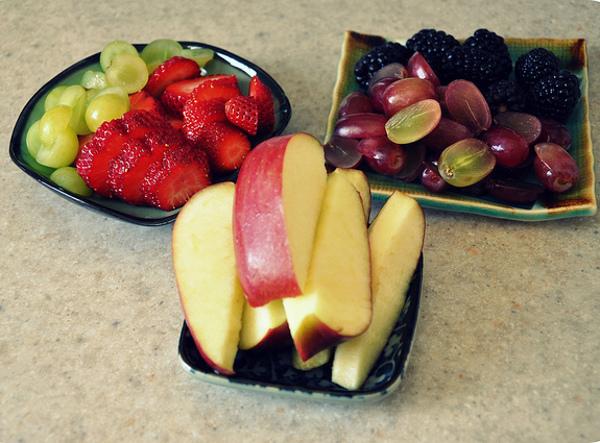16 Simple Ways To Lose Weight Without Dieting
Going on a diet and hitting the gym are often considered as effective options to lose weight. Fortunately, they yield results. But, considering our daily hectic schedules, dieting and exercising is not everybody’s cup of tea. We are often left with very little time to pay attention to diet or to working out for hours in a gym. Moreover, diets and exercise programmes can help in losing a few pounds in a short time, but this weight loss is only temporary. Dieters are likely to get back all their lost weight and perhaps some extra weight as well after reverting to their normal schedule.
It is a misconception that weight loss can be achieved only through dieting or rigorous exercising. So how to lose weight without a diet plan? Following a healthy lifestyle is equally important in maintaining an ideal body weight. By trying the following strategies, you can slim down in a healthy and painless manner without suffering from starvation or from monotony of following a diet.
Here is how you can lose weight without dieting.
1. Get Proper Sleep:
Sleep is believed to be the nature’s preservative that nourishes the mind at the end of a day’s hard work and tiredness. The importance of sleep cannot be ignored when it comes to triggering weight loss. While you are asleep, your body is working to regulate your systems and heal any damage done from any wear and tear. Even the digestive system is pumping hard to process your food, metabolize the carbohydrates and break down fats. Sleep deprivation results in changes in hormone levels, particularly cortisol and insulin. Cortisol regulates sugar, fat, protein, mineral and water metabolism and insulin is responsible for blood sugar and fat storage. Sleep deprivation triggers cortisol production and leads to increased levels of insulin which makes weight loss even more challenging. Thus, treating yourself to a good night sleep can help a lot in reducing weight.
2. Chew your food properly:
Studies have proved that if you spend longer time in chewing food, you are likely to consume lesser calories. Moreover, chewing for a longer time prevents over-eating because it gives the brain extra time to receive signals from the stomach that it is full. This also facilitates proper digestion and limits your portion size. Therefore, it is recommended that the food should be chewed about 35 to 50 times per mouthful.
3. Pay Attention on your Food:
We have often heard (and even ignored) our elders advising us not to talk, read or watch TV while eating food. When you are multitasking during your meals, you are likely to consume more amount of food and put on extra pounds. Hence, paying attention on what you are eating is very important.
4. Avoid Overcooking:
Overcooking your food results in considerable reduction of nutrients. If you are deprived of nutrients, you do not feel satisfied and may crave for junk food. In order to prevent this you can increase the consumption of raw foods like salads and sushi. It is advisable to eat steamed, baked, blanched or grilled vegetables and grilled or baked meat and fish.
5. Eat more Produce and Whole grains:
Low calorie fruits and vegetables should be consumed more than other foods that are high in fat and calories. Vegetables should be consumed more often than meat as they are rich in vitamins, minerals, phytonutrients and fibre. Whole grains like whole wheat breads and pastas, brown rice, bran flakes, popcorn should be substituted for refined grains like white bread, cakes, cookies and pretzels as they provide the much needed fibre, thus keeping you full for a longer time.
6. Have Breakfast Everyday:
It is a misconception that skipping breakfast is a way to cut calories and lose weight. Breakfast is the most important meal of the day and should not be ignored at any cost. Refuelling your body a few times a day is very important. But when you skip your breakfast, you start feeling extremely hungry by the lunch time and end up overeating and choosing unhealthy food items. Missing breakfast also slows down your metabolism. Therefore, always eat your breakfast within an hour of waking up. A bowl of whole grain cereal and low fat dairy can give a nutritious start to your day.
7. Have Frequent, Smaller Meals:
Eating frequent meals accelerates your metabolism and keeps it working at an elevated level continuously throughout the day. Hence, it is ideal to eat five to six times per day with a two to three hour break between each meal and snack. Portion control is important to prevent over-eating. This can be achieved by using small bowls, plates and cups. Reducing your portions by 10% to 20% can be conducive to weight loss.
8. Eat Fruits before Meals:
Make it a habit to eat fruits at least 30 minutes before any heavy meal as fruits can be digested quickly. Eating fruits on an empty stomach detoxifies your system and makes you eat less.
9. Finish your Dinner by 8 p.m.:
Late night eating should not be resorted to as you are likely to pile on extra pounds. In fact, you should eat your last meal before eight in the evening to avoid binging on a snack before dinner time. Herbal tea is a good option to satisfy your hunger after dinner time and then brush your teeth to switch off your mind from the idea of eating.
10. Be Careful in choosing Liquid Calories:
Sweetened drinks should be avoided as they are high in calories. Satisfy your thirst with water, skim or low fat milk or small portions of 100% fruit juices or low calorie vegetable juice. Limiting alcohol can save considerable amount of calories as alcohol calories add up quickly.
11. Drink Enough Water:
Drinking enough water is a key to a healthy lifestyle. Drinking cold water boosts your metabolism as your body will work harder to warm up the liquid resulting in more calories being burnt. Besides, it keeps you feeling full so that you do not snack. It keeps your system hydrated and helps release muscle-building hormones in your body.
12. Have Protein at every Meal and Snack:
Foods containing lean or low fat protein should form part of every meal or snack as they provide a feeling of fullness for longer periods, thus keeping you from over-eating. Low-yoghurt, small portion of nuts, peanut butter, eggs, beans and lean meats are recommended.
13. Drink Green Tea:
In addition to water, green tea is also a great metabolism booster. Studies have shown that drinking green tea can result in 400 extra calories burnt in a week. It also has an antioxidant power.
14. Try to increase your steps:
Walking is considered a great exercise when it comes to losing weight. 10000 steps are recommended in a day for favourable results. Pedometer can be used to calculate and add more steps.
15. Laughter and Weight Loss:
Laughter is considered to be the best medicine and the same holds true when it comes to burning calories as well. A giggle increases your heart rate, blood circulation and tones your abdominal muscles, and hence providing a natural cardio workout. Laughing heartily five times a day has the same benefits as 10 minutes on a rowing machine. Ten to fifteen minutes of solid laughter can burn 50 calories, which can add up to burning 4.4 pounds in a year.
16. Way of Breathing:
Breathing in a proper way to burn more calories. Unfortunately, most of us don’t do this. Diaphragmatic breathing is the correct way of breathing – in through the nose and out through the mouth. Full diaphragmatic breathing burns more calories and tones abs by actively using the muscles and delivering more oxygen to the blood and muscles, thereby allowing us to work out harder and longer.
Thus, we have seen here that dieting is not the only option to lose weight. Also it’s not about what you eat, but about how you eat. Instead of depriving yourself of the food you love and starving to lose weight, you can eat everything in moderation and maintain an ideal weight. Following a healthy lifestyle and being emotionally ready to incorporate these changes is the key to success.
Category: Weight Loss






0 comments